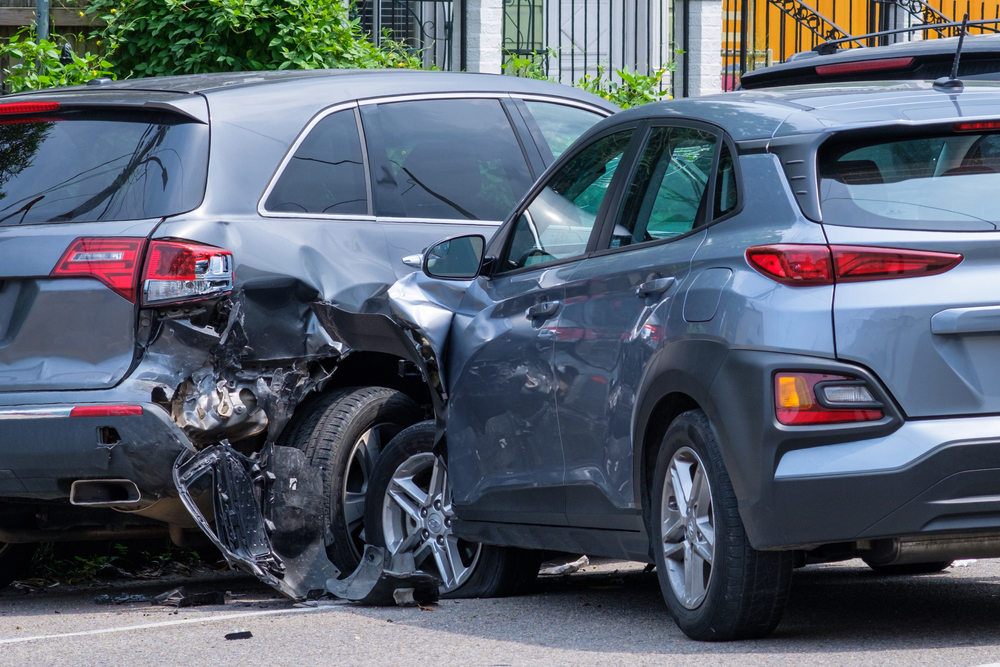If you’ve been in a car accident in Denver, Colorado, you may be dealing with injuries, mounting medical bills, and a disrupted life. Meeting with a car accident lawyer in Denver can help you get the legal support you need to navigate the complex aftermath of an accident and seek the compensation you may be able to obtain. However, to make the most of your first consultation, it’s important to come prepared.
At William McBride Law Group, we strive to provide our clients with the best possible guidance. To get started, here is a list of the key documents and information you should bring to your first meeting with your car accident lawyer.
1. Accident Report
The police report is one of the most critical pieces of evidence in any car accident case. The accident report typically contains important details, such as:
- Date and time of the accident
- Location of the crash
- Weather conditions and road circumstances
- Statements from witnesses and involved parties
- Police officer’s findings about fault
Your car accident lawyer in Denver will use the accident report to understand what happened and to develop a strategy for your case. If you don’t have a copy, you can usually obtain it from the local police department or the Colorado Department of Revenue’s website.
2. Medical Records and Bills
If you were injured in the accident, it’s essential to provide documentation of your medical treatment. Bring medical records and bills related to your injuries, including:
- Emergency room visits
- Doctor consultations
- X-rays, MRIs, or other diagnostic tests
- Prescriptions and treatment plans
These records are vital for demonstrating the extent of your injuries, the treatment you’ve received, and any ongoing care you may need. Medical bills will also help your car accident lawyer in Denver calculate the economic damages you may be able to receive.
3. Photos and Videos
If you have photos or videos from the accident scene, be sure to bring them to your meeting. This could include:
- Pictures of vehicle damage
- Photos of the accident scene showing road conditions, weather, and surrounding elements
- Photos of your injuries taken immediately after the accident and during your recovery
Visual evidence is invaluable in supporting your claim and showing the impact of the accident on your life. If you haven’t taken photos yet, be sure to document any remaining evidence such as vehicle damage or visible injuries.
4. Insurance Information
Bring all relevant insurance information, including:
- Your auto insurance policy
- Correspondence from your insurance company, such as emails or letters
- Correspondence from the other driver’s insurance company
Insurance companies often contact accident victims right away, and they may ask for statements or try to offer a settlement. It’s important to share this information with your car accident lawyer in Denver so they can understand what has already been discussed and can protect your interests moving forward.
5. Proof of Lost Wages
If your injuries have prevented you from working, bring proof of lost wages to your meeting. This can include:
- Pay stubs
- Tax returns
- Letters from your employer verifying the time you’ve missed from work
Lost wages are an important part of your compensation claim, and your car accident lawyer in Denver will need this information to calculate the full extent of your economic losses.
6. Contact Information for Witnesses
If there were witnesses to your accident, bring their contact information to your car accident lawyer in Denver. Witness testimony can be incredibly helpful in establishing who was at fault for the accident. The more people who can corroborate your account of what happened, the stronger your case will be.
7. Documentation of Vehicle Damage
Bring any estimates or repair invoices related to the damage to your vehicle. If your car was totaled, bring documents showing the value of the vehicle and any offers from the insurance company. This information will help your car accident lawyer in Denver determine the amount of property damage compensation you may be able to obtain receive.
8. Personal Account of the Accident
While it’s not a physical document, it’s important to have a detailed account of what happened leading up to, during, and after the accident. Write down everything you remember, including:
- The time and location of the accident
- What you were doing just before the crash
- Road and weather conditions
- Actions taken by the other driver(s)
Your personal account will provide valuable context for your attorney and help them understand the situation from your perspective.
9. Questions You Want to Ask
Preparing a list of questions you want to ask your car accident lawyer in Denver is a great way to make sure you get all the information you need during your first consultation. Examples of questions include:
- What is your experience with car accident cases like mine?
- How long do you think it will take to resolve my case?
- How will you communicate with me throughout the process?
Take Action Today with Our Car Accident Lawyer in Denver!
Being prepared for your first meeting with a car accident lawyer in Denver can make a significant difference in the success of your case. By bringing all the necessary documents and information, you give your car accident lawyer in Denver the tools they need to start building a strong case on your behalf. At William McBride Law Group, we understand how overwhelming the aftermath of an accident can be, and we’re here to guide you through every step of the process.
If you’ve been in an accident, don’t wait to get the legal help you need. Contact William McBride Law Group today to schedule your free consultation and let us help you pursue the compensation you may be able to obtain.

